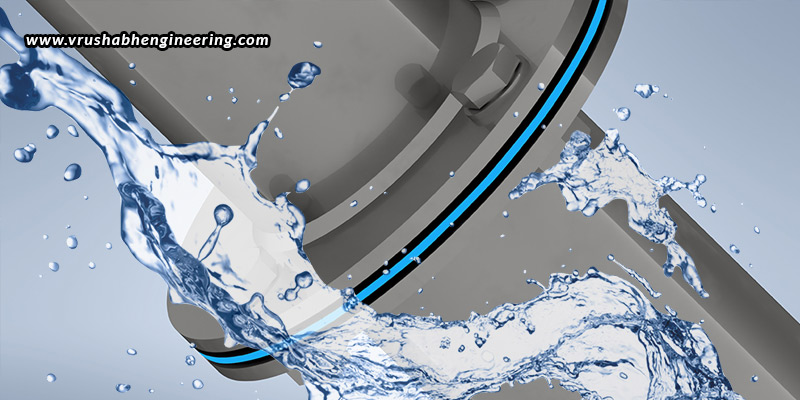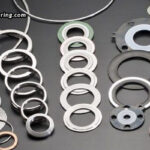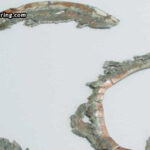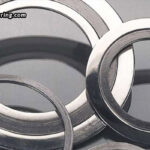Gaskets are essential components in sealing systems, as they prevent leaks and ensure the safe and efficient functioning of machinery and pipelines. The effectiveness of gaskets is significantly influenced by their compatibility with the fluids they encounter, such as oils, gases, and chemicals. Utilizing an inappropriate gasket material can result in early failure, leaks, or potentially dangerous situations. This article examines the interactions between various gasket materials and different fluids, highlighting the importance of material compatibility for achieving optimal performance.
Gasket material compatibility
Gasket compatibility refers to a material’s capacity to retain its sealing properties when exposed to various fluids. Key factors that influence effectiveness include chemical resistance, temperature stability, and pressure tolerance. The gasket must be able to resist swelling, degradation, or adverse reactions with the fluid, endure temperature fluctuations without becoming too hard or soft, and maintain its sealing capability under different pressure conditions. Choosing the appropriate gasket material based on the type of fluid is crucial to avoid leaks, prevent equipment damage, and minimize costly downtime.
Gasket compatibility with oils
Oils, such as engine oils, hydraulic fluids, and industrial lubricants, necessitate gaskets that can endure swelling, softening, or degradation from extended exposure.
Nitrile rubber (NBR) is a commonly utilized material for oil sealing, recognized for its superior resistance to petroleum-based oils and fuels, making it suitable for both automotive and industrial uses. Viton (FKM) is another favoured option, as it can withstand elevated temperatures and aggressive oils, making it ideal for high-performance sealing applications. Additionally, cork and rubber composites are frequently employed in engine gaskets, providing both flexibility and resistance to oil infiltration.
A significant challenge in oil-sealing applications is the selection of a gasket material that remains stable over time. Natural rubber and EPDM gaskets should be avoided for use with petroleum-based oils, as they are prone to rapid deterioration when exposed to hydrocarbons. Furthermore, the gasket material must be capable of withstanding the complete operating temperature range, particularly in high-heat environments like engine compartments.
Gasket compatibility with gases
Gases, including steam, natural gas, and compressed air, necessitate gaskets that can sustain an airtight seal across a range of pressures and temperatures.
Graphite gaskets are particularly well-suited for applications involving steam and high-temperature gases, thanks to their superior heat resistance and ability to preserve sealing integrity in extreme conditions. PTFE (Teflon) gaskets also serve as a dependable alternative, being chemically inert and capable of effectively sealing aggressive gases and highly reactive materials without deterioration over time. In the context of high-pressure gas pipelines, metallic gaskets, such as ring-type joint (RTJ) and spiral-wound designs, are frequently employed due to their robustness and ability to maintain effective seals even when faced with fluctuating pressure levels.
A significant challenge in gas-sealing applications is the potential for gas permeation through inferior gaskets, which can result in gradual leaks over time. In high-pressure settings, the use of metal-reinforced gaskets is strongly advised, as they resist deformation and ensure a durable seal.
Gasket compatibility with chemicals
Chemical processing facilities and laboratories handle highly corrosive fluids that can quickly deteriorate inappropriate gasket materials.
PTFE (Teflon) stands out as one of the most chemically resistant gasket materials, making it particularly suitable for sealing acids, solvents, and aggressive chemicals. Its inert properties guarantee stability even in extremely corrosive conditions. Viton (FKM) is another commendable option, providing resistance to hydrocarbons, acids, and various chemicals commonly encountered in fuel and oil applications. For water-based chemicals, acids, and alcohols, EPDM (Ethylene Propylene Diene Monomer) is an appropriate choice, although it is not advisable for use with petroleum-based fluids.
A significant challenge in chemical sealing applications is ensuring that the gasket material is compatible with the specific chemicals it will encounter. Some materials may withstand certain acids but may fail when exposed to strong bases or oxidizers. Furthermore, rubber-based gaskets should typically be avoided for highly aggressive chemicals unless they are specifically designed to offer enhanced chemical resistance.
Common gasket failures due to fluid incompatibility
Utilizing inappropriate gasket materials can result in significant failures, including leaks, contamination, and damage to equipment. Common types of failures include swelling and softening, where rubber gaskets absorb liquids and consequently lose their structural integrity; hardening and cracking, which occur due to extended exposure to elevated temperatures; and chemical degradation, where incompatible gaskets are compromised by corrosive substances, leading to swift failure. To mitigate these risks, it is crucial to perform compatibility testing prior to selecting a gasket material, opt for high-quality gaskets tailored to the specific fluid and application, and carry out regular maintenance to inspect and replace gaskets before they reach the point of failure.
Choosing the appropriate gasket material is essential to achieve safe and effective sealing in a variety of industrial settings. Whether dealing with petroleum oils, gases, or aggressive chemicals, ensuring gasket compatibility with the fluid is essential to prevent leaks and uphold equipment integrity. By evaluating factors such as chemical resistance, temperature stability, and pressure tolerance, industries can enhance their gasket selection for improved performance and longevity. For professional advice on fluid-compatible gasket solutions, reach out to Vrushabh Engineering, a prominent high-quality gaskets supplier in India, whose gasket solutions are designed to deliver enduring performance even in the most challenging environments.





